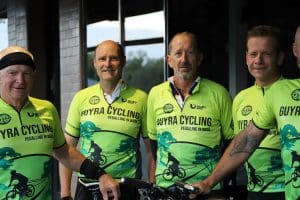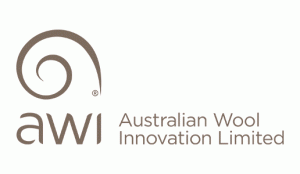Grower story – Karori Pastoral Co from Bluey Merino HQ on Vimeo.
AUSTRALIAN Wool Innovation has claimed its focus is not on garment innovation, while defending its lack of development support for New South Wales ethical wool manufacturer Bluey Merino.
Australia’s grower levy-funded wool research, development and marketing body recently knocked back Bluey Merino’s request for development support for its unique three-layered Merino wool puffer vest and for the company’s latest product – a wool-based snowboard.
Bluey Merino has subsequently chosen not to use the AWI-owned trademark Woolmark, but has persisted to use homegrown wool innovations, domestic and overseas technical manufacturing to this year release three new products.
These products include:
– the world’s first three-layered Merino urban ‘puffer’ vest using Optim fabric which is 100 percent superfine merino + 80pc wool filler;
– a Merino SportsTech cycling jersey for clubs and hardcore cyclists made from blended Merino, polyester and tencel, and;
– a Merino flyfishing and outdoor jacket that reinvents the well-known Bluey felted jacket using double layered 100pc Merino fabric made overseas and exported direct to market
Bluey Merino founder Andrew Ross said none of his company’s innovative products are currently made by an Australian commercial brand.
“Our release will be at the end of May online direct to our customers,” he said.
Mr Ross said he tried for years, but could not yet get the vest made in Australia, although the inner layer came direct from the South Australian company MiniJumbuk.
“We don’t have that technical outdoor manufacturing expertise so we have had to move it to Vietnam to make that and we are exporting it straight into the United States.”

Guyra club cyclists wearing the Bluey Merino jersey.
The 16.3 micron fibre for the cycling jersey is sourced direct from Ed and Karen Blomfield’s ultrafine flock at Walcha and is certified ethical (non-mulesed), milled in Italy and then made proudly in Australia. The jerseys will be worn on the Tour de Rocks event starting from Armidale next month.
Blue Merino started its product development using IP developed in Australia and utilizing domestic innovative fabric knitting techniques and makers when available, Mr Ross said.
“We have started with the things we can actually do in Australia and remain fully committed to making super-soft next-to-skin layers in Australia…
“We are bringing the whole story back here eventually, but you can only do so much without deep technical support,” he said.
“We are focused very much on sourcing wool direct from ethical growers over the long term – 20 years.”
‘AWI’s focus is not on fostering garment innovation’

AWI: no garment innovation focus.
On its website’s ‘Where we invest’ section, AWI states that one of its objectives is to increase the profitability and sustainability of wool processing.
AWI lists outcomes such as developing new innovative manufacturing processes, and new product ranges based on newly developed processes launched globally. The company has assisted overseas wool manufacturers and brands, and it has also fostered programs such as Fibre of Football to promote wool in sportswear, the garment design competition Wool4School and the Woolmark Prize for innovative high-end fashion designers.
Mr Ross met with AWI’s general manager of processing innovation and education extension, Julie Davies in early February last year in Denver, USA to seek help with its Merino wool puffer vest development.
He showed her his puffer jackets and discussed seeking some product development assistance.
“She proudly produced the Woolmark version with a synthetic lining – I said it had to be Merino otherwise you lose breathability and authenticity,” he said.
“She was seemingly not interested in helping us – but rather focussed to get a Woolmark product to market.
“So a big question arises what is their role, obviously not help but rather to compete with small local brands we feel?”
Mr Ross said Bluey Merino chose to target the US market because of the lack of support in Australia and subsequently designed the vest for USA consumers. It will be released in Australia in mid-June.
An AWI spokesperson said AWI “invests in research and development, marketing and promotion to enhance the profitability, international competitiveness and sustainability of the Australian wool industry and to increase the demand and market access for Australian wool.”
“As such, AWI’s focus is not on fostering garment innovation.”
The spokesperson said AWI’s records show Bluey Merino company is not currently registered as a Woolmark licensee after not renewing its licence in June 2018.
“The Woolmark Company acts as an independent quality assurance of Australian wool products, making the Woolmark brand the best-known textile quality brand and wool content label in the world.”
The AWI spokesperson was unable to state whether AWI has given any assistance to Australian companies developing or marketing new woollen products, or how much money the company spends or has spent, on fostering garment and wool manufacturing innovation in Australia.
Woolmark offers no value – Ross

The Woolmark logo.
AWI’s wholly owned marketing arm The Woolmark Company claims the unique Woolmark trademark is one of the world’s best known textile quality fibre brands, and has been applied to more than 5 billion products since the creation of the original mark in 1964.
But Mr Ross said he is now choosing not to use the trademark after making a “last ditch” effort to get support from AWI to help develop a new innovative Australian HardWool product with applications in the global outdoor Industry. Hardwool Plank snowboards are due for release in 2020 for extended field testing, creating a whole new product category for wool, he said.
“We were a Woolmark licensee and had no value from them at all – so we’ve dropped that because they haven’t got a model that supports small brands in Australia,” he said.
AWI approached Bluey Merino after hearing they were developing new products, but offered marketing support and no monetary assistance for development, Mr Ross said.
“So I said ‘goodbye’.
“We offered our IP around developing a range of new products in Australia, got knocked back and so have gone our own way in terms of innovating apparel.”
No AWI support for unique HardWool product
Mr Ross said Bluey Merino would be bringing out new products without the Woolmark logo on them.
‘HardWool’ is a whole new category of product which doesn’t exist in Australia and Bluey Merino is working with partners on commercialization in Australia, he said.
“They (AWI) said there is one product in the world already made that way – there is a surfboard made in New Zealand (the Woolight board),” Mr Ross said.
“Our first HardWool product is a snowboard with a very different composition and approach,” he said.
“It is an eco-friendly environmentally-made snowboard.”
Mr Ross said the snowboard construction process is different to that used for the Woolight surfboards.
“HardWool uses a different technique that is transferable to other products like furniture, tables; almost any product currently utilising plastic it can replace.”
“Yes, there are other products available, but none made in Australia, none involving Australian wool growers and none where financial remuneration goes back to Australian wool growers in the form of a premium.”
However, Ms Davies told Mr Ross a project proposal submitted to AWI for HardWool research funding for 2019/20 was not successful because a similar use for wool has previously been commercialised in surfboards. But she said AWI would welcome opportunities to assist with commercialisation or supply chain introductions.
AWI pandering only to international brands – Ross
Mr Ross said the “bigger issue” for AWI and Woolmark, is that they are pandering to global brands, while there is no product-related innovation going on in Australia close to the source of the fibre.
“They will partner with the Chinese, they will give it away to the Chinese, like they did with Optim, but there is no IP, no product intellect being developed here in Australia that I can see.”
Mr Ross said CSIRO originally developed the early Optim and offered it to AWI and AWI said ‘no, not interested.’
“Two years later it comes out of a factory in China – I’ve got very deep question marks around licensing and IP and about who actually owns that but I am pretty sure it is the Chinese – Nanshan Group owns it.”
Mr Ross said Woolmark is not a logo recognized in the outdoor industry, nor is there any tangible benefit for small Australian labels using it.
“Woolmark prefers to financially support international brands who have a ready-made profile, for example, how much support did they give Adidas?
“It’s sad, but a reality when you are small,” he said.
“Bluey Merino dropped Woolmark accreditation as it’s not suitable for start-up Australian brands with no or little direct support from AWI.”
Support needed to foster homegrown innovation
Mr Ross said Bluey Merino aimed to be positive about the wool industry and support growers directly, but he is saddened by AWI’s lack of support for small Australian-owned brands and dismayed by the lack of product innovation coming from the Australian wool industry, as distinct from developments occurring overseas.
“Any money going into product innovation is through private funds these days – the Kiwis are killing us with their marketing and support.”
He said the last two major product developments were over 10 years ago, having been the Optim technology and SportWool.
Optim technology re-engineers wool fibres by stretching to make them softer, stronger and lighter than the untreated wool. It was used to develop the water and wind resistant jackets promoted by AWI recently. Optim technology was originally developed by the CSIRO before being sold by AWI to China, he said.
SportWool was also developed by the CSIRO for athletes as a lightweight, composite fabric with a layer of machine-washable superfine Merino wool next to the skin and a layer of tough, easy-care polyester on the outside.
Mr Ross said all the wool used in the Bluey Merino products comes from non-mulesing flocks due to the global change in consumer buying habits. He is also helping growers reach ethical wool production standards such as the Responsible Wool Standard or Chargeurs’ Organica protocol through the Eco-Merino Growers Co-op and his MyOrigins Technologies platform, which supports direct connection with international brands.

I`m a textile engineer with 50 years of experience who grow in Biella Italy since 1990, but now resident in South Africa (Cape Town).
I’m retired from production but still available for any consultancy. Wool it has been my passion in all my life. I developed 18 years ago a corduroy in wool superwash total easy-care fabric and I let tailored pair of trousers for my self. I still used sometimes even now. It had practically more than 100 machine washing cycle, are still in my wardrobe and I promise are very comfortable in winter. I used for skiing in the Alps and also on a very cold days in Cape Town.
My question is: why this kind of garments has never been successful in the market?
As readers of Sheep Central would understand, I have enormous empathy for Andrew Ross. All wool growers should read very carefully Andrew Ross’ experience of trying to get some technical support for product development from AWI.
Since the collapse of the Reserve Price Scheme in the early 1990s, there are many many woolgrower-initiated enterprises that could have developed into creative Australian wool brands with a bit of a helping hand from AWI, but no, AWI is only interested in itself and promoting itself to their market — the growers who stupidly continue to pay 2 percent of their income to support an organisation so it can continue in the style to which it is accustomed.